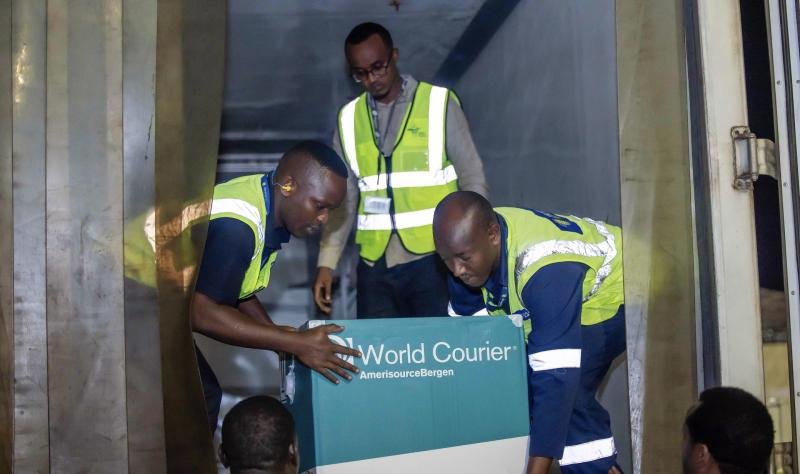Rwanda’s Ministry of Health has reported a steady rise in the number of Marburg virus infections over the past few days, and amid rapid developments, the country has received shipments of the investigational Marburg virus vaccine and is ramping up its efforts to provide health care workers with the vaccine. Vaccinations have started.
Rwanda’s Ministry of Health announced in its latest update over the past three days that 20 more cases and one more death have been confirmed, bringing the total number of infections to 56, including 12 deaths due to the infection. Contains people.
Doses arrive from Sabin Vaccine Institute
Meanwhile, the country’s Health Ministry announced yesterday that it had received 700 doses of the Marburg vaccine the night before, and that it would immediately distribute them to doctors and health workers hit hard by the outbreak. According to previous reports, the majority of infections involved health workers, particularly those at two hospitals in the capital, Kigali.
Health officials are currently administering vaccines through mobile clinics. Rwanda’s Minister of Health, Sabin Nsanzimana, M.D., said at a press conference that the vaccine is also being used in other countries, including Uganda and Kenya. He added that two drugs, remdesivir and monoclonal antibodies, are being used to help Marburg disease patients in Rwanda.
The vaccine was provided by the Washington, D.C.-based Sabin Vaccine Institute, which said in a statement on Oct. It was announced that the doses had been shipped.
The report said the clinical trial agreement with the Rwanda Biomedical Center applies to a rapid-response, phase 2, open-label trial in at-risk adults, including healthcare workers. The vaccine will be administered at six clinical trial sites in Rwanda.
The group added that it will provide more doses pending a request from Rwanda and approval from the US Biomedical Advanced Research and Development Authority (BARDA), which is part of the Ministry of Health and Human Services. There is currently no approved treatment or vaccine for Marburg virus infection, and the case fatality rate is as high as 88%.
The institute said its vaccine is made on a modified chimpanzee adenovirus (ChAd3) platform and is administered as a single dose. It added that phase 1 clinical trials and non-clinical studies suggest the vaccine is safe and stimulates a rapid and strong immune response.
Vaccine rollout at unprecedented speed
Before vaccines for Ebola virus, a close relative of Marburg virus, were approved, clinical trials of vaccines in endemic areas were difficult. That’s because virus levels often dropped before vaccine doses arrived, making it more difficult to assess effectiveness.
Sabin CEO Amy Finan said the group was able to ship the vaccine within seven days of the Rwandan government requesting assistance. “This rapid emergency response can achieve remarkable results when a dedicated and cooperative group of individuals and organizations come together with a common purpose: to stop the outbreak of a deadly disease and prevent further loss of life. It shows what can be achieved.”
Dr. Craig Spencer, MPH, an emergency physician who worked in West Africa during the Ebola outbreak and is an Ebola survivor, said on yesterday’s I can’t stress this enough,” he said. More than a week ago today, frontline health care workers have been able to receive vaccinations. The amount of work required to achieve this is enormous. It was really, really impressive. ” Spencer is currently enrolled in the Brown University School of Public Health.

